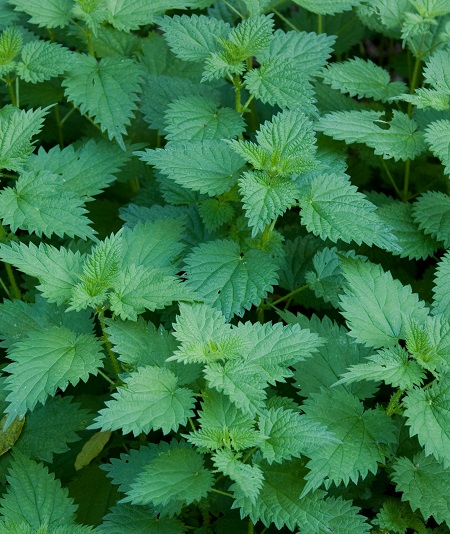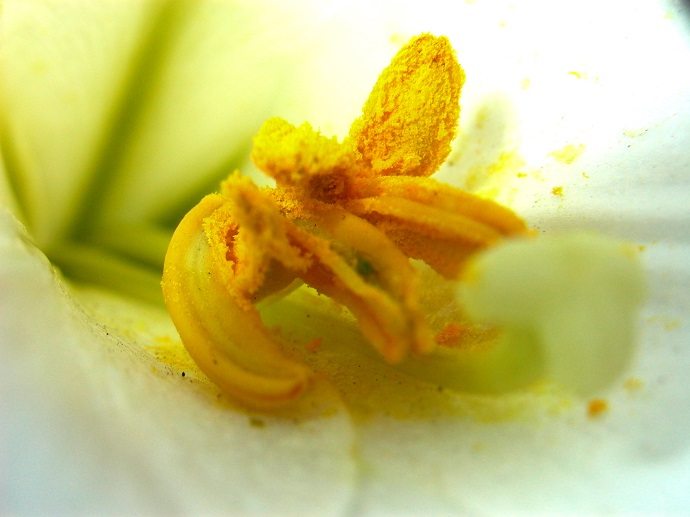Natural Remedies for Allergies

Allergies affect many people and only a handful of those people can get relief from medicines. These medicines may cause annoying side effects. Natural remedies for allergies, nevertheless, have very few side effects. The natural way will help fight office allergic reactions to many plants just like the dreadful ragweed.
As the better days of summer start to wind down, people quickly harvest the last of the crops. If you are within the over 26 million people who are affected by these seasonal allergies, you are more than likely focused on more than just the first freeze, pollen counts and hitting the store for tissues and the allergy medicines than you are about the last of the tomatoes.
People who among the sneezing, sniffling and itchy allergy demographic will usually depend on the medicines and spray for help. Many people will also get mixed results. A lot of the pharmaceutical treatments may help ease the itching and sneezing but will do little about the congestion and the other way around. In a recent meeting, the American College of Allergy, Asthma and Immunology has reported that almost one third of the allergy suffers believe that the medications do not work. And more, the usual medicinal medicines are very expensive and come with many unwanted side effects. This will usually include, drowsiness and nose irritation. Many of these medicines may impair your driving ability and can cause mental detach which many users find this very irritating.
Yearly dealing with the pollen are very uncomfortable and can take a peal on your mental well-being. It has been shown that during the ragweed season, many allergy sufferers will experience a feeling of fatigue, this is especially for mental fatigue and are more likely to have the feeling of being sad a lot. Also people who have allergies are 14 times likely to experience a migraine than people who do not have allergies.
With those numbers, you may want to put the blankets over your head and just wait out the allergy season. But you need to know that it is very possible to go outside without having to take a ton of medicine even though the ragweed is in full bloom. There are many natural remedies for allergies that are proven to help you control the problem so that you can breathe very easy even though the pollen counts are high.
Understand Your Allergies
When you have a great understanding of what is going on when you have an allergy attack, you can treat them naturally. Firstly, go ahead and picture a small pollen grain. It would look like a sea urchin. Now think about the invader going into your nose and sticking to the mucus membranes. All of the mucus membranes boarder the bronchial and nose ways and they have immune cells. These cells are called mast cells. These contain a great deal of histamines. The receptors will stay on top of the mast cells and whenever the allergen attacks, like pollen or mold, and lands on the receptor, it will warn the mast cell, then the mast cell will respond with releasing the histamine and many other chemicals. This histamine will initiate the series of reactions that are designed to protect your body and help rid the intruder. This includes, watery eyes, sneezing and itching. For some with asthma, this sort of reaction can make it hard to breathe since the bronchial tubes could swell.
The Natural Remedies
Many of the allergy medications that are out there will try to help the symptoms that your body instigates to rid of the allergen. Most of the natural remedies following are made to help prevent an allergic reaction even before if happens.
Some small lifestyle changes may also be needs to help keep the allergy symptoms in line:
– Do not use window fans, as these can and will bring the pollen inside.
– When you are driving down the road make sure to keep your windows closed. Use the air conditioner if you need too.
– Whenever the pollen counts are high, limit your time outside.
Here are many things that can help keep allergies at bay before they start. Many are drug-free ways.
Neti Pots
Nothing could be easier than washing the allergens away then with saltwater. These neti pots are like a small vessel that is shaped just like Aladdin’s lamp. They have also been used in the country of India for many years to keep the sinuses clear. It is a little like using a nasal spray. A small dose of saltwater will help rinse the pollen grains away and can even treat the allergies and many other forms of congested sinuses.
In just the last year, the International Archives of Allergy and Immunology had saw that nasal flushing is a great and effective way to help treat your seasonal allergies in children and lowered the amount on unnatural medicines greatly.
Instead of using a net pot, you can just cup your hands instead. The neti pots are very inexpensive and people have found them very helpful and easy to use. All you have to do it is mix ¼ – ½ teaspoon of non-iodized salt in a cup of room temperature water and pour it into the pot. Next you need to hover over the sink with your head cocked to one side and you insert the neti spout into one of your nostrils and let the water drain out of the other one. You should use only half of the solution. Next repeat the steps for the other side. Finally, you need to gently blow air out of each of your nostrils to help completely clear them. You are able to use the neti pot twice daily during the allergy season.
Quercetin
Quercetin is a natural compound that is plant derived and is call bioflavonoid. Quercetin will help you stabilize mast cells and help prevent the cells from releasing histamine. Quercetin is a natural antioxidant that can help mop up the molecules that are called free radicals. These cause cell damage. Wine and lettuce are naturally real high in quercetin. Most of the allergy sufferers will need to use many supplements to help make enough to prevent attacks. The most recommended dose it just about 1000 milligrams each day between your meals. It is best to start doing this about six weeks before the coming of allergy season. People who have liver disease should never use quercetin. As always consult your doctor before you use any supplements. This is so if you are pregnant or nursing too.
Allergy-Fighting Foods
A study that was published in the Allergy journal said that people who had a diet high in omega-3 fatty acids were less likely to have allergies than people who did not usually eat the foods. This can help fight off inflammation and can also be found in flaxseed oil, meat, eggs, walnut and cold water fish.
To help your airways stay clear, just add a dash of some horseradish, hot mustard or even some chili peppers to your food. These will act as a natural decongestant. It is a great idea to avoid foods that you may be slightly allergic to until the pollen counts are down. If not, then you may be more prone to an allergic reaction.
Stinging Nettle
If by any chance you may need an antihistamine but at the same time you may wish for a natural option, then the stinging nettle can act in the same way as most of drugs that are sold to help treat allergies. Nettle will inhibit the body to produce the histamine.

It is a very common weed in most part of the United States. Most of the medicine for is in a freeze dried extract sold in capsules. Some studies have also been shown that if you take 300 milligrams each day this can give you great relief.
Butterbur
Butterbur is taken from a very common weed in Europe. This is an alternative to the antihistamines. It is very hard to find in the United States. During the days right before refrigeration, it’s leave are wrapped around butter during the warm spells, therefore given the name butterbur. The Swiss study, that was published in British Journal of Medicine, stated that the butterbur works as much as the medicine cetirizine. This is an active ingredient in the medicine Zyrtec. Cetirizine is said to be a non-drowsy antihistamine but many have reported that it does in fact cause drowsiness but butterbur does not. The participants that took the study consumed 32 milligrams of butterbur each day, this was divided into four different doses. Since butterbur is from the same family as the ragweed, in some cases it can cause worse allergy symptoms.
Sublingual Immunotherapy
Immunotherapy, known as allergy shots, have been injected into people with diluted doses of different allergens. This helps to build up your immunity to the allergens over a period of time. Sometime allergy shots may take up to three to five or more years to become effective. The allergy shots became uncommon in the United Kingdom in the late 1980s after many reactions occurred, it is still used greatly in the United States.
Many new studies found that a gentle way to acclimate the body to allergens. The recent form of the therapy is called sublingual immunotherapy or SLIT. This has been used for 20 years in Europe. The SLIT treatment requires the person to drop a small drop of the allergen under their tongues for approximately two minutes then they swallow. The therapy will usually begin right before peak pollen season, but can also be used to help those ones with year round allergies.
A study in the United Kingdom had found that the patients who were using the SLIT for two years were almost seven times less to get a runny nose and three times less to sneeze. Since the allergy extract is not approved by the FDA in the United States, you will need to check with your insurance and doctors before even attempting to use the SLIT therapy.

If you are suffering from seasonal or yearlong allergies, these remedies should be able to help you get out and harvest that crop.